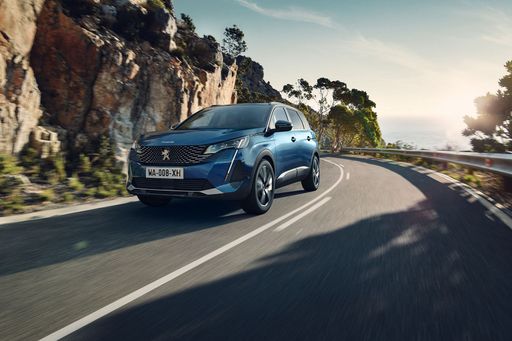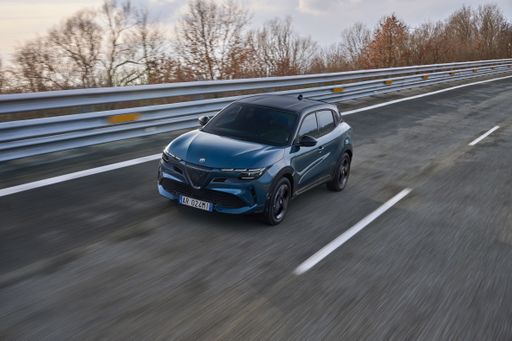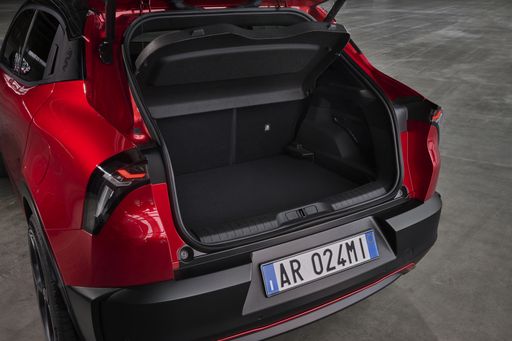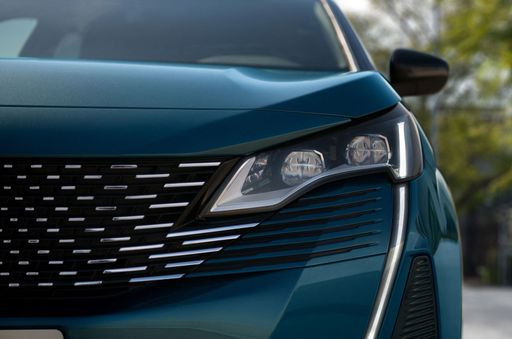Alfa Romeo Junior vs Peugeot 5008 – Performance, range & efficiency compared
Both models have their strengths – but which one suits you more?
Compare performance, efficiency, price and space directly: Alfa Romeo Junior or Peugeot 5008?
Costs and Efficiency:
Price and efficiency are key factors when choosing a car – and this is often where the real differences emerge.
Alfa Romeo Junior has a convincingly advantage in terms of price – it starts at 25700 £, while the Peugeot 5008 costs 37600 £. That’s a price difference of around 11923 £.
Fuel consumption also shows a difference: Peugeot 5008 manages with 1 L and is therefore decisively more efficient than the Alfa Romeo Junior with 4.80 L. The difference is about 3.80 L per 100 km.
In terms of energy consumption, the advantage goes to the Alfa Romeo Junior: with 15.10 kWh per 100 km, it’s a bit more efficient than the Peugeot 5008 with 17.80 kWh. That’s a difference of about 2.70 kWh.
As for range, the Peugeot 5008 performs clearly perceptible better – achieving up to 674 km, about 264 km more than the Alfa Romeo Junior.
Engine and Performance:
Under the bonnet, it becomes clear which model is tuned for sportiness and which one takes the lead when you hit the accelerator.
When it comes to engine power, the Peugeot 5008 has a to a small extent edge – offering 325 HP compared to 280 HP. That’s roughly 45 HP more horsepower.
In acceleration from 0 to 100 km/h, the Alfa Romeo Junior is slightly quicker – completing the sprint in 5.90 s, while the Peugeot 5008 takes 6.50 s. That’s about 0.60 s faster.
In terms of top speed, the Peugeot 5008 performs minimal better – reaching 220 km/h, while the Alfa Romeo Junior tops out at 206 km/h. The difference is around 14 km/h.
There’s also a difference in torque: Peugeot 5008 pulls noticeable stronger with 511 Nm compared to 345 Nm. That’s about 166 Nm difference.
Space and Everyday Use:
Cabin size, boot volume and payload all play a role in everyday practicality. Here, comfort and flexibility make the difference.
Seats: Peugeot 5008 offers clearly perceptible more seating capacity – 7 vs 5.
In curb weight, Alfa Romeo Junior is noticeable lighter – 1380 kg compared to 1700 kg. The difference is around 320 kg.
In terms of boot space, the Peugeot 5008 offers convincingly more room – 994 L compared to 415 L. That’s a difference of about 579 L.
In maximum load capacity, the Peugeot 5008 performs significantly better – up to 2310 L, which is about 1030 L more than the Alfa Romeo Junior.
When it comes to payload, Peugeot 5008 distinct takes the win – 699 kg compared to 420 kg. That’s a difference of about 279 kg.
Who wins the race?
The Peugeot 5008 proves to be wins the duel decisively and therefore becomes our DriveDuel Champion!
Peugeot 5008 is the better all-rounder in this comparison.
 @ Peugeot / Stellantis Media
@ Peugeot / Stellantis Media
Peugeot 5008
Alfa Romeo Junior
The Alfa Romeo Junior captures the essence of Italian design with its sleek lines and compact dimensions, making it an icon of elegance and performance. With a spirited driving experience and a charming retro aesthetic, it appeals to enthusiasts and casual drivers alike. This delightful car embodies the brand's rich heritage while remaining a fun and engaging option for those seeking a unique automotive experience.
details @ Alfa Romeo / Stellantis Media
@ Alfa Romeo / Stellantis Media
 @ Alfa Romeo / Stellantis Media
@ Alfa Romeo / Stellantis Media
 @ Alfa Romeo / Stellantis Media
@ Alfa Romeo / Stellantis Media
Peugeot 5008
The Peugeot 5008 impresses with its sleek design and spacious interior, making it an appealing choice for families and those needing extra room. Its elegant exterior lines are complemented by a well-crafted cabin that offers both comfort and versatility, ideal for longer journeys or everyday use. With a range of modern features and technology, the 5008 delivers a balanced blend of style and functionality that enhances the driving experience.
details @ Peugeot / Stellantis Media
@ Peugeot / Stellantis Media
 @ Peugeot / Stellantis Media
@ Peugeot / Stellantis Media
 @ Peugeot / Stellantis Media
@ Peugeot / Stellantis Media
 @ Peugeot / Stellantis Media
@ Peugeot / Stellantis Media
 @ Alfa Romeo / Stellantis Media
@ Alfa Romeo / Stellantis Media
|
 @ Peugeot / Stellantis Media
@ Peugeot / Stellantis Media
|
|
|
|
Costs and Consumption |
|
|---|---|
|
Price
25700 - 41600 £
|
Price
37600 - 53600 £
|
|
Consumption L/100km
4.8 - 5.4 L
|
Consumption L/100km
1 - 5.6 L
|
|
Consumption kWh/100km
15.1 - 17.5 kWh
|
Consumption kWh/100km
17.8 - 18.6 kWh
|
|
Electric Range
344 - 410 km
|
Electric Range
79 - 674 km
|
|
Battery Capacity
0.4 - 51 kWh
|
Battery Capacity
0.4 - 96.9 kWh
|
|
co2
0 - 119 g/km
|
co2
0 - 127 g/km
|
|
Fuel tank capacity
44 - 45 L
|
Fuel tank capacity
55 L
|
Dimensions and Body |
|
|---|---|
|
Body Type
SUV
|
Body Type
SUV
|
|
Seats
5
|
Seats
5 - 7
|
|
Doors
5
|
Doors
5
|
|
Curb weight
1380 - 1689 kg
|
Curb weight
1700 - 2406 kg
|
|
Trunk capacity
340 - 415 L
|
Trunk capacity
294 - 994 L
|
|
Length
4173 mm
|
Length
4791 mm
|
|
Width
1781 mm
|
Width
1895 mm
|
|
Height
1505 - 1538 mm
|
Height
1694 mm
|
|
Max trunk capacity
1205 - 1280 L
|
Max trunk capacity
1815 - 2310 L
|
|
Payload
390 - 420 kg
|
Payload
534 - 699 kg
|
Engine and Performance |
|
|---|---|
|
Engine Type
Electric, Petrol MHEV
|
Engine Type
Plugin Hybrid, Electric, Petrol MHEV
|
|
Transmission
Automatic
|
Transmission
Automatic
|
|
Transmission Detail
Dual-Clutch Automatic, Reduction Gearbox
|
Transmission Detail
Dual-Clutch Automatic, Reduction Gearbox
|
|
Drive Type
Front-Wheel Drive, All-Wheel Drive
|
Drive Type
Front-Wheel Drive, All-Wheel Drive
|
|
Power HP
136 - 280 HP
|
Power HP
145 - 325 HP
|
|
Acceleration 0-100km/h
5.9 - 9.1 s
|
Acceleration 0-100km/h
6.5 - 10.2 s
|
|
Max Speed
150 - 206 km/h
|
Max Speed
170 - 220 km/h
|
|
Torque
230 - 345 Nm
|
Torque
230 - 511 Nm
|
|
Number of Cylinders
3
|
Number of Cylinders
3 - 4
|
|
Power kW
100 - 207 kW
|
Power kW
107 - 239 kW
|
|
Engine capacity
1199 cm3
|
Engine capacity
1199 - 1598 cm3
|
General |
|
|---|---|
|
Model Year
2024 - 2025
|
Model Year
2024 - 2025
|
|
CO2 Efficiency Class
A, C, D
|
CO2 Efficiency Class
B, A, D
|
|
Brand
Alfa Romeo
|
Brand
Peugeot
|
What drive types are available for the Alfa Romeo Junior?
Available configurations include Front-Wheel Drive or All-Wheel Drive.
The prices and data displayed are estimates based on German list prices and may vary by country. This information is not legally binding.
